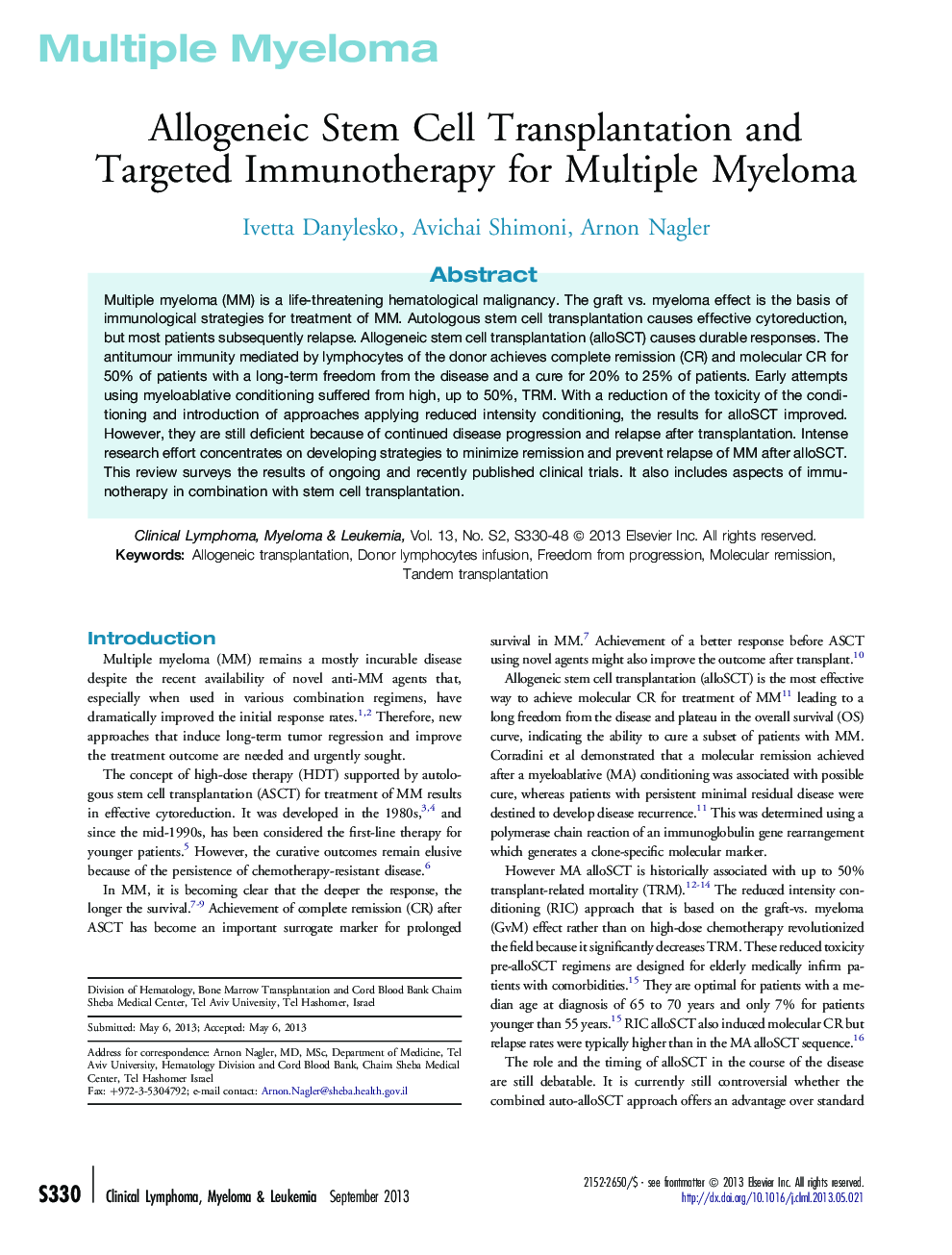| Article ID | Journal | Published Year | Pages | File Type |
|---|---|---|---|---|
| 2755036 | Clinical Lymphoma Myeloma and Leukemia | 2013 | 19 Pages |
Multiple myeloma (MM) is a life-threatening hematological malignancy. The graft vs. myeloma effect is the basis of immunological strategies for treatment of MM. Autologous stem cell transplantation causes effective cytoreduction, but most patients subsequently relapse. Allogeneic stem cell transplantation (alloSCT) causes durable responses. The antitumour immunity mediated by lymphocytes of the donor achieves complete remission (CR) and molecular CR for 50% of patients with a long-term freedom from the disease and a cure for 20% to 25% of patients. Early attempts using myeloablative conditioning suffered from high, up to 50%, TRM. With a reduction of the toxicity of the conditioning and introduction of approaches applying reduced intensity conditioning, the results for alloSCT improved. However, they are still deficient because of continued disease progression and relapse after transplantation. Intense research effort concentrates on developing strategies to minimize remission and prevent relapse of MM after alloSCT. This review surveys the results of ongoing and recently published clinical trials. It also includes aspects of immunotherapy in combination with stem cell transplantation.
